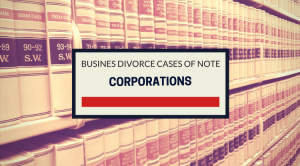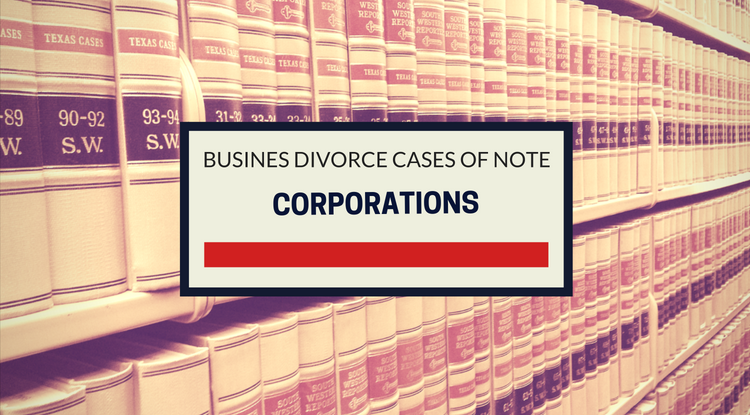- Deadlock is more than an inability to make a decision. It is an inability to act under circumstances that present the real threat of harm to the business.
- Deadlock is triggered by the shareholders’ inability to elect directors.
- When there are no alternatives to prevent harm to the business, like a buy-sell agreement, a Court is likely to find that the shareholders or directors are deadlocked.
For the closely held corporation, deadlock may be the result of a dispute among the shareholders, or among the directors in circumstances that the shareholders cannot fix by electing new directors. Whether a court is asked to find deadlock under an applicable corporations statute or as part of a common-law remedy, deadlock is rarely found in circumstances in which there is no threat of significant or irreparable harm.
In this article, we will consider some of the circumstance in which courts have been asked to declare that a deadlock exists among the directors and/or shareholders of a corporation – often in a closely held corporation they are one and the same – and to fashion a remedy. Most often the principal remedy in the case of a “true deadlock” is the dissolution of the corporation, which entails the liquidation of the entity. Courts rarely impose such an extreme remedy on a viable business entity, so such remedies as the sale of a minority interest, sale of the entity as a going concern or other types of injunctive relief are far more common.
case of a “true deadlock” is the dissolution of the corporation, which entails the liquidation of the entity. Courts rarely impose such an extreme remedy on a viable business entity, so such remedies as the sale of a minority interest, sale of the entity as a going concern or other types of injunctive relief are far more common.
A Series Examining Deadlock Among the Owners of Closely Held Corporations, Limited Liability Companies and Partnerships
Corporations statues vary in the statutory remedy for deadlock or oppression. The Model Business Corporations Act (MBCA), on which many state corporations codes are modeled, provides for the judicial dissolution of a corporation when the shareholders are unable to elect directors or when the directors are deadlocked in the management of corporate affairs; the shareholders cannot break the deadlock; and there is either the potential for irreparable harm to the corporation, or the “business and affairs of the corporation” cannot be conducted to the advantage of the shareholders. MCBA § 14.30. The model act also provides a court with broad powers to appoint a custodian to manage and/or wind up the affairs of the corporation. MCBA §§ 7.48; 14.32. Continue reading
 The dismissal of a judicial dissolution claim brought by an LLC member seeking to dissolve the family business demonstrates the difficulty that an oppressed minority LLC member faces under New York law.
The dismissal of a judicial dissolution claim brought by an LLC member seeking to dissolve the family business demonstrates the difficulty that an oppressed minority LLC member faces under New York law.




 A Delaware chancery judge drew a liberal comparison between a venture capital fund organized as a limited liability company and a limited partnership in holding that a member that had been forced out was entitled to fair value rather than the value of his capital account. The result was that his buyout increased by some fivefold, but not for the reasons advanced by the departing member.
A Delaware chancery judge drew a liberal comparison between a venture capital fund organized as a limited liability company and a limited partnership in holding that a member that had been forced out was entitled to fair value rather than the value of his capital account. The result was that his buyout increased by some fivefold, but not for the reasons advanced by the departing member.



